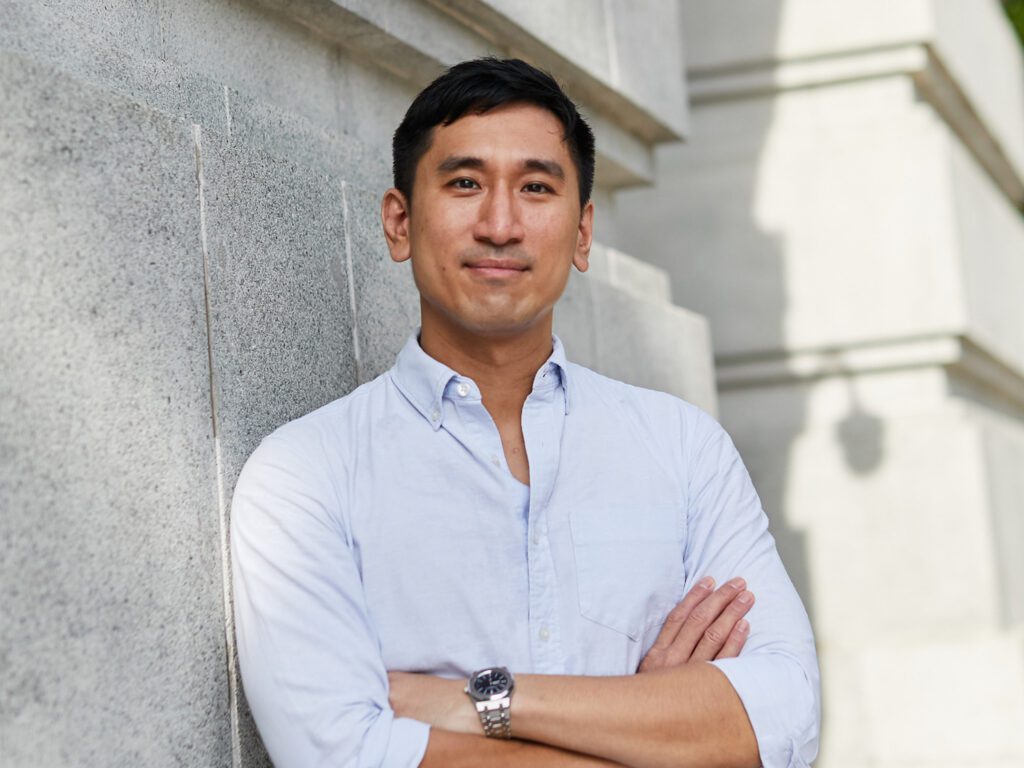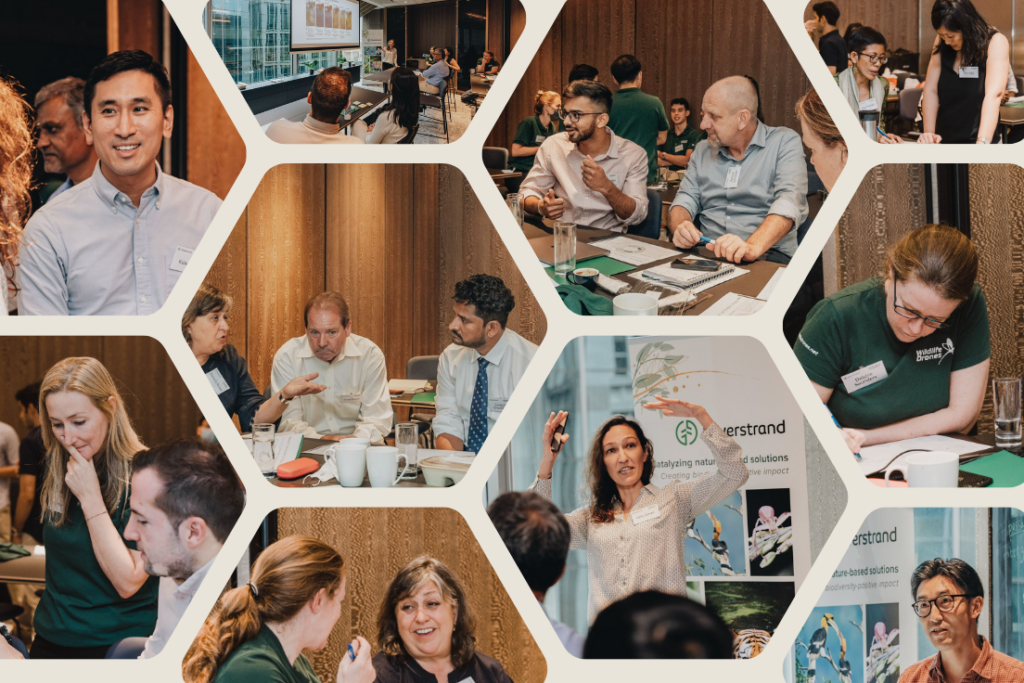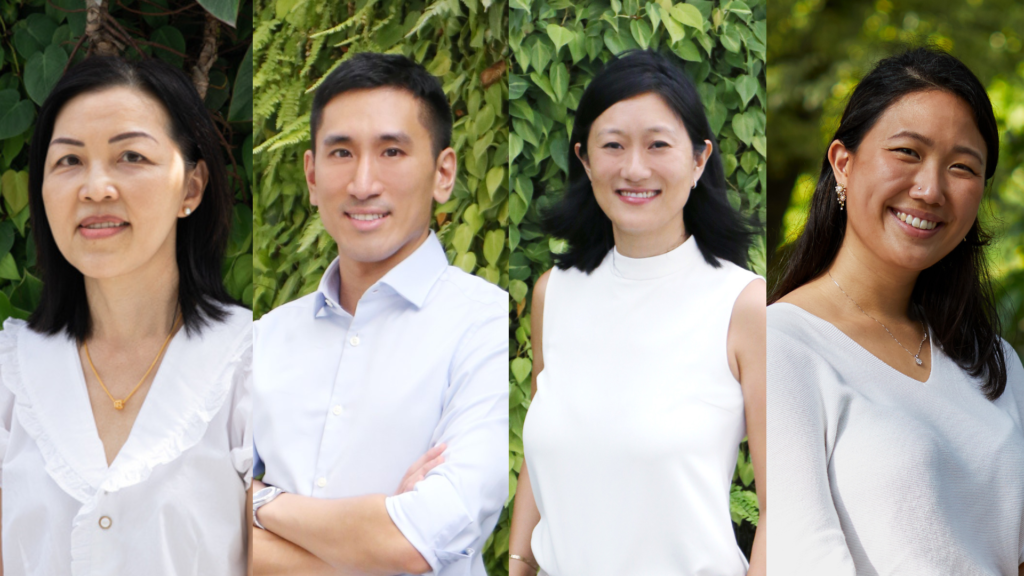Reposted from Mongabay.com, originally published on 10 January 2023. Photo by Mongabay.
Last month, delegates meeting at the United Nations Biodiversity Conference reached agreement on a plan to protect and restore 30 percent of the world’s land and ocean by 2030. The accord was widely seen as a positive development for efforts to address the global extinction crisis, which often struggles to attract the public’s attention and investment relative to climate change.
- Recognizing the importance of accelerating investment and innovation in biodiversity conservation, Silverstrand Capital–a Singapore-based family office–last year launched a program that provides capital, in-kind services and coaching, and other forms of support to companies and organizations that are developing “biodiversity-positive” solutions
- “Climate action is important, but climate is just one aspect of planetary health,” said Silverstrand Capital’s Founder Kelvin Chiu. “Collectively we should widen our perspectives beyond carbon. Nature is inherently complex, and biodiversity as a metric captures such complexity more holistically than carbon.”
- Chiu recently spoke with Mongabay about the importance of biodiversity, obstacles in bringing biodiversity solutions to scale, and creating biodiversity-positive impact.
Among the planetary challenges we face, biodiversity loss often takes a back seat to climate change. However, interest in “nature-based solutions” is rising as more people recognize the opportunities presented by protecting and restoring natural ecosystems. For example, restoring a degraded tract of mangroves can sequester vast amounts of carbon while simultaneously buffering against storm damage and bolstering fisheries.
RELEVANT SUSTAINABLE GOALS



Nonetheless many nature-based solutions are still primarily built around the value of the carbon sequestered rather than value of biodiversity or the other services afforded by a healthy and productive ecosystem. Accordingly, unless a project or initiative can make a strong case based on carbon alone, it can struggle to secure support, whether that’s seed capital, funding to go to scale, or donations.
Seeing this as a major gap, last year Silverstrand Capital–a Singapore-based family office–launched an accelerator program to catalyze investment in biodiversity by providing capital, in-kind services and coaching, and other forms of support to companies and organizations that are developing “biodiversity-positive” innovations and projects that go beyond carbon.

“Climate action is important, but climate is just one aspect of planetary health,” Silverstrand Capital’s Founder Kelvin Chiu told Mongabay. “Collectively we should widen our perspectives beyond carbon. Nature is inherently complex, and biodiversity as a metric captures such complexity more holistically than carbon.”
“What is good for nature is good for climate, but what is good for climate is not necessarily good for nature. Many climate investments don’t improve nature and some indeed harm nature, like biofuels, hydroelectric dams, or direct air capture facilities that require clearing of natural lands. We’d argue that it’s better to focus on nature and biodiversity, and that doing so is taking an additional, necessary step beyond ‘net-zero.’”

The first cohort under Silverstrand Capital’s Biodiversity Accelerator+ programincluded seven entities working on nature-based solutions and technology, ranging from GroundUp Conservation, an incubator for grassroots enterprises in biodiversity hotspots, to Nightjar, which produces an AI-enabled, real-time camera alert system to facilitate monitoring of protected areas.
The response to the program has been very positive so far, says Chiu.
“A big reason why we launched the accelerator was for it to act as a hub for important conversation, and also to bring others on this journey with us to support biodiversity. There are many investors interested in biodiversity, but there has not been enough thought leadership on how we collectively can invest in a meaningful way, and what that means or looks like,” he said.
“The feedback from fellow investors and capacity builders has been really positive, and we have been heartened to see increased inbound investor interest in this space. Our peers have told us that this type of biodiversity-focused work is really lacking, but exactly what is needed for this space to develop.”

Chiu spoke about the accelerator program, Silverstrand Capital interest in nature-based solutions, investing in conservation, and more during a recent exchange with Mongabay Founder Rhett A. Butler.
An Interview With Kelvin Chiu
Mongabay: What inspired Silverstrand’s interest in nature-based solutions?
Kelvin Chiu: Nature-based Solutions (NbS) are the only solutions that can address both the climate crisis and ecological crisis simultaneously. They have a critical social angle too – when efficiently deployed, they can materially improve the livelihoods of indigenous communities, who as we know make up 5% population but manage land that has 80% of biodiversity.
Despite this, NbS are underfunded. There’s now more money flowing into climate investing, which is great, but not necessarily into NbS. For example, in the venture capital space, the past two years have seen investments into ecosystem restoration of ~US$200M. Comparatively, funding going into electric mobility was US$16B – 80 times that, despite nature holding twice as much promise on carbon maths and providing numerous additional environmental and social co-benefits.
We wanted to do our part to accelerate investments into NBS. The team and I are inspired to protect nature by the beauty of nature. We’ve been blessed with many wonderful experiences in nature, particularly in South East Asia, and are passionate about protecting biodiversity. We feel that it is humanity’s collective duty and responsibility to not only protect what is left, but also to restore what was lost, and we want to do our part in that.
Mongabay: Silverstrand specifically identifies “creating biodiversity-positive impact” as a goal, which is a different focus than most entities in this realm, which are focused on carbon. Why did you decide to prioritize biodiversity?
Kelvin Chiu: Climate action is important, but climate is just one aspect of planetary health. Collectively we should widen our perspectives beyond carbon. Nature is inherently complex, and biodiversity as a metric captures such complexity more holistically than carbon.
What is good for nature is good for climate, but what is good for climate is not necessarily good for nature. Many climate investments don’t improve nature and some indeed harm nature, like biofuels, hydroelectric dams, or direct air capture facilities that require clearing of natural lands. We’d argue that it’s better to focus on nature and biodiversity, and that doing so is taking an additional, necessary step beyond ‘net-zero’.
Mongabay: What kind of investments (in terms of entities) are you making in this space?
Kelvin Chiu: We categorize our investments into two themes – “Nature-based Solutions” and “Nature Technology”.
Nature-based Solutions include conservation and regenerative agriculture / aquaculture projects, and the suppliers, processors and consumer brands that engage with local communities to solve on-the-ground supply chain challenges.

Nature Technology includes innovative hardware and software solutions that ease conservation or restoration bottlenecks, or that enable the deployment of NbS at scale. These include biodiversity MRV and data analytics – because we cannot value what we cannot measure – or platforms that improve environmental project management, or invasive species management.
Mongabay: What have you determined to be some of the obstacles in bringing biodiversity solutions to scale?
Kelvin Chiu: There are two that come to mind:
Firstly, there is a need to bring together and foster collaboration among various groups with complementary skill sets, in order to form financially sustainable and scalable business models and to accelerate impact. We find that the competences needed to scale solutions can be siloed in various groups. NGOs and academics can bring valuable ecological expertise and/or experience of local and cultural integration, but may lack the commercial experience to create a pragmatic business model to scale operations. On the other hand, those with commercial or financial backgrounds can benefit from a deeper understanding of the complexities of biodiversity in order to build truly impactful ventures.

Secondly, biodiversity is hard to measure and is not fungible, unlike carbon, meaning it is significantly harder to internalize the positive externalities and to reward good stewards of biodiverse natural capital. Biodiversity credit/offset markets are inherently local; paying for a biodiversity benefit in one place cannot truly compensate for its destruction in another place. Measurement is also complex with many “open-ended” biodiversity parameters and there may not be a one-size-fit-all metric. There are exciting developments on these, but it’s still early. Until this changes, carbon with social and environmental co-benefits remains the best way to internalize the positive ecosystem services that nature provides.
Mongabay: This year you launched The Biodiversity Accelerator+ to scale up efforts to protect biodiversity. How is that going so far?
Kelvin Chiu: Overall, it was a very enriching experience, an intense but fun three months. For ourselves, it was deeply rewarding to work closely with entrepreneurs and to see their progress during the time.
One of the highlights for us and for the cohort was working with our 15 partner organizations. We knew we needed a multistakeholder approach in order to offer a multi-dimensional program, and that collaborating with others was the key to the program’s success. It was great to work with other investors and founders who acted as mentors for the cohort, guiding them with invaluable advice about various aspects of their businesses, but also with academic, philanthropic and government organizations who helped with providing the wider scientific and policy context for their work and had engaging dialogues. Overall, it was great to see so many in Singapore and the wider South East Asia ecosystem aligned with our vision – that the biodiversity crisis is urgent and needs addressing now, and that the private sector has a huge role to play in that. We are extremely grateful for our partners’ support, and the program couldn’t have happened without them.

Feedback from the cohort has been very positive. One consistent feedback was that, besides the official content, there was a tremendous amount of peer learning and that they found each other engaging and supportive. We took seven companies in, all focused on enhancing biodiversity, but working on very different solutions. We wanted to create a synergetic and cooperative experience for the cohort rather than a competitive one. This was an approach everyone appreciated – there were genuine connections and friendships formed, and everyone who participated is keen to continue engaging post-graduation.
Mongabay: Have you gotten much feedback from peers on your approach? If so, what are they saying?
Kelvin Chiu: A big reason why we launched the accelerator was for it to act as a hub for important conversation, and also to bring others on this journey with us to support biodiversity. There are many investors interested in biodiversity, but there has not been enough thought leadership on how we collectively can invest in a meaningful way, and what that means or looks like.
The feedback from fellow investors and capacity builders has been really positive, and we have been heartened to see increased inbound investor interest in this space. Our peers have told us that this type of biodiversity-focused work is really lacking, but exactly what is needed for this space to develop.
Mongabay: And what have you learned?
Kelvin Chiu: Early-stage companies need more than just financial capital to succeed – specifically, they can benefit from structured learning, patient support and an engaging community to fall back on. The market and its policy context are rapidly evolving, and founders need to be aware of this wider context to spot opportunities and to avoid pitfalls. Doing this with a community of investors, fellow entrepreneurs, mentors and coaches, with a real sense of togetherness, is significantly easier than journeying alone.

We have gained a deeper appreciation for entrepreneurs and their work, even more so than before. Seeing first-hand the challenges they face really reinforced the point that they are the ones on the frontline taking risks and making sacrifices. Our role as impact investors is to support them where we can, and our desire to help and enable entrepreneurs has grown stronger than ever before.
We have learned more about the nature of learning and how to create the right environment for it. There is no one-size-fits-all model – everyone is at a different stage of business, and goes at a different cadence, appreciates different programme lengths, intensities and session types. It is an iterative process but to optimize learning, we will strive to continuously improve the format so that it is both helpful to all and flexible at the same time.
Reposted from Mongabay.com, originally published on 10 January 2023. Read the original here .


